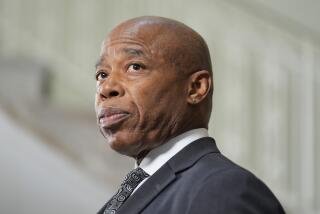Christ Is the Only Path to Heaven
For more than two centuries, Americans have revered--and fought and died for--individual freedom. They agree that playing by the rules is a good thing but grow uneasy when it comes to acknowledging the prospect of a changeless eternal sovereign who has established immutable laws.
Changeless sovereign? Immutable laws? For Americans, “changeless” and “immutable” have been eclipsed by “flavor of the month.”
For more than a century, our egalitarian views have colored our religion. “Who do I think I am,” we ask ourselves, “to espouse restrictive standards that might conflict with another’s beliefs or lifestyle?” We must never offend! In America’s open marketplace of ideas, we’ve taken the easy way out: All ideologies are accorded equal value and status.
Christians who happen to view their faith from a 1st century, orthodox perspective--and who regard the portal to eternity as a narrow one--are wearing bell-bottoms in the age of hip-hop. American culture considers Christians Neanderthals or worse who hold to the belief that one is saved for eternity only through faith in Jesus Christ.
“If you confess with your mouth that Jesus is Lord and believe in your heart that God raised him from the dead, you will be saved,” the apostle Paul wrote. “For it is by believing in your heart that you are made right with God, and it is by confessing with your mouth that you are saved.” (Romans 10:9-10, New Living Translation)
Paul was writing for a 1st century audience, right? We, the enlightened products of 20 centuries of technological progress, are far too advanced for that nonsense, right?
“I am the way, the truth and the life,” Jesus says definitively. “No one can come to the Father except through me.” (John 14:6 NLT) No one? How intolerant!
Orthodox Christianity’s unwavering claim that Christ alone is the narrow portal through which one enters the hereafter is dismissed by a society that champions wide boulevards and hassle-free access. And here’s a grabber: Some of Christianity’s fiercest critics are members of its own clergy who, years ago, abandoned their Bibles for “The Handbook of What’s Happenin’ Now.” Rather than advancing the cause of Christ, these supposed shepherds of the flock are trumpeting the latest Zeitgeist, or Spirit of the Age.
“All roads up the mountain lead to the top,” they intone. But those words are an insult to the one they’ve taken vows to serve.
A recent CNN-USA Today-Gallup poll found that nearly nine out of 10 Americans believe in God. While many claim to be devout, few view their personal faith as the only “true path to God.” About 75% say there is another religion other than their own that offers an equally authentic path. And 44% believe that a “good person,” even though an atheist, will be granted access to heaven by the very God he refuses to acknowledge. We want God, but on our own terms.
The Incarnation--God clothing himself in human flesh and dying on a cross for the sins of humankind--is the central doctrine of the Christian faith. Yet, quite remarkably, many who profess to be Christian have ceased believing the literal truth of that doctrine. Legions live a falsehood. On Sunday mornings they recite from memory the words of the creeds (“He came down from heaven and was made man” and “very God of very God”) without believing them.
The first casualty of Christian modernism has been the supernatural. We Christians who embrace the incarnation worship a transcendental God who established and then physically invaded his creation. Christianity, by its nature, must be a supernatural faith. Without the supernatural, we possess a collection of honorable bromides that are completely devoid of power.
Can those who call themselves Christian, yet do not believe in the bodily resurrection of their Lord, still affix his name to their faith-amalgam? In my opinion, no. A secular Christian is as useless a term--and individual--as a truthful liar. The contradiction is lethal.
Call me a “fundy,” but my beliefs are biblically based, not cooked up by my personal fancy. Give me Jesus walking on water, restoring sight to the blind and raising Lazarus from the tomb. I take those events literally. And their plausibility is made more manifest to me when I consider how Jesus Christ has taken my own train-wreck of a life, infused it with his presence and given me hope for the future and eternity.
I make no apologies. I worship a supernatural God who sacrificed his son on a cross to establish humanity’s only provision for eternity.
But we have the freedom to reject it.
On Faith is a forum for Orange County clergy and others to offer their views on religious topics of general interest. Submissions, which will be published at the discretion of The Times and are subject to editing, should be delivered to Orange County religion page editor Deanne Brandon.
More to Read
Sign up for Essential California
The most important California stories and recommendations in your inbox every morning.
You may occasionally receive promotional content from the Los Angeles Times.










